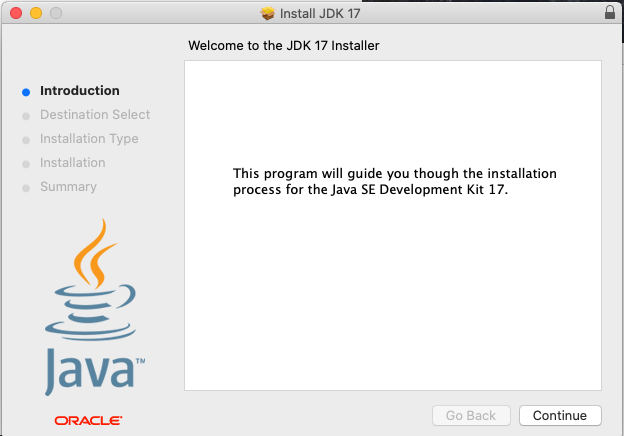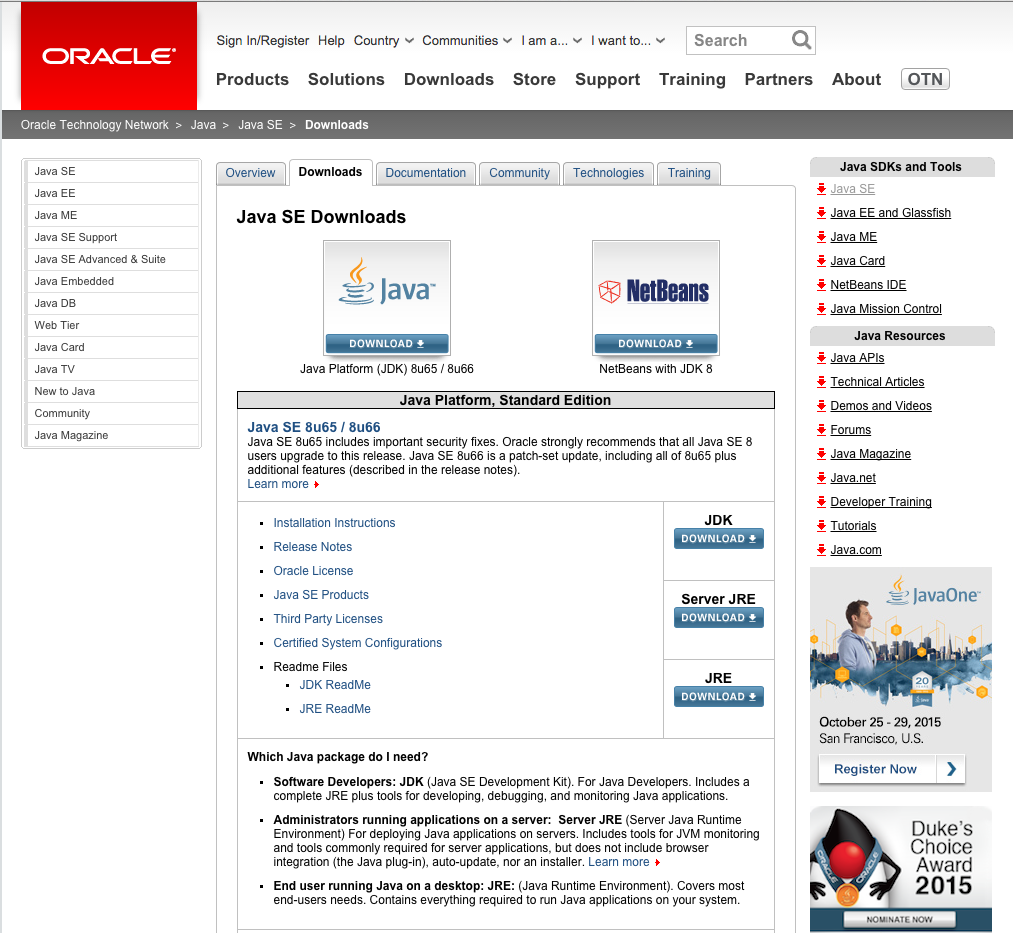

- #ORACLE INSTALL JAVA MAC OS X HOW TO#
- #ORACLE INSTALL JAVA MAC OS X MAC OS X#
- #ORACLE INSTALL JAVA MAC OS X DOWNLOAD#
OpenJDK 64-Bit Server VM AdoptOpenJDK (build 11.0.4+11, mixed mode) OpenJDK Runtime Environment AdoptOpenJDK (build 11.0.4+11) … hopefully showing something like this: openjdk 11.0.4 After opening a terminal, the successful installation of the JDK can be confirmed like so: java -version OpenJDK11U-jdk_圆4_mac_hotspot_11.0.4_11.pkg, which when executed, will install into this location: /Library/Java/JavaVirtualMachines/adoptopenjdk-11.jdkĪlmost done.
#ORACLE INSTALL JAVA MAC OS X DOWNLOAD#
However, the easiest way is to select OpenJDK 11 (LTS), the HotSpot JVM, and macOS 圆4, which will expose two option like these:Ĭlicking on “Install JDK installer”, will download the OpenJDK installer package, e.g.
#ORACLE INSTALL JAVA MAC OS X HOW TO#
Easy to follow details about how to install OpenJDK are available here. As I’m writing this, Java 11.0.4 is the latest version and AdoptOpenJDK is one of the best places to find Prebuilt OpenJDK Binaries. Since OS X 10.7 Java is not (pre-)installed anymore, let’s fix that. HelloWorld.Looking for how to install Java on Big Sur? Please take a look over here.

You can simply run your application within the official JDK container - meaning that you don't have to worry about getting everything set up on your local machine (or worry about running multiple different versions of the JDK for different apps etc)Īlthough this might not help you with your current installation issues, it is a solution which means you can side-step the minefield of issues related with trying to get Java running correctly on your dev machine! To set JAVA_HOME: $ jenv enable-plugin exportĪn option that I am starting to really like for running applications on my local computer is to use Docker. To see all the installed java: $ jenv versionsĪbove command will give the list of installed java: * system (set by /Users/lyncean/.jenv/version)Ĭonfigure the java version which you want to use: $ jenv global oracle64-1.6.0.39 $ jenv add /Library/Java/JavaVirtualMachines/jdk1.11.0_2.jdk/Contents/Home $ echo 'eval "$(jenv init -)"' > ~/.bash_profileĪdd the installed java to jenv: $ jenv add /Library/Java/JavaVirtualMachines/jdk1.8.0_202.jdk/Contents/Home $ echo 'export PATH="$HOME/.jenv/bin:$PATH"' > ~/.bash_profile Install and configure jenv: $ brew install jenv If you want to install/manage multiple version then you can use 'jenv': To install java 8: $ brew cask install adoptopenjdk/openjdk/adoptopenjdk8 To install latest java: $ brew cask install java Install cask (with Homebrew 0.9.5 or higher, cask is included so skip this step): $ brew tap caskroom/cask Why doesn't Oracle's installer put it where it really goes? And how can I work around this problem?Īssumption: Mac machine and you already have installed homebrew. Ironically, the "Java" control panel under System Preferences shows only Java 1.8! usr/libexec/java_home -V still only lists the old Java 1.6. I've tried adding a symbolic link to make it look like 1.8 is in the /System/Library. But /usr/libexec/java_home doesn't find 1.8, so all the posts I've found on how to set your current java version don't work. Not sure why the latest installer puts this in /Library instead of /System/Library (nor what the difference is). I ran Oracle's Java 8 installer, and the files look like they ended up at /Library/Java/JavaVirtualMachines/jdk1.8.0_05.jdkīut previous versions are at /System/Library/Java/JavaFrameworks/jdk1.6.
#ORACLE INSTALL JAVA MAC OS X MAC OS X#
I'm using IntelliJ 13 CE and Mac OS X 9 Mavericks. I want to do some programming with the latest JavaFX, which requires Java 8.

Editors note: This question was asked in 2014, and the answers may be outdated.


 0 kommentar(er)
0 kommentar(er)
